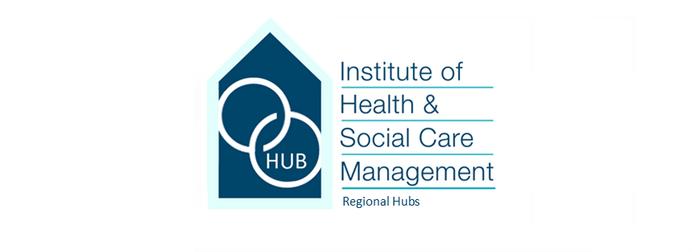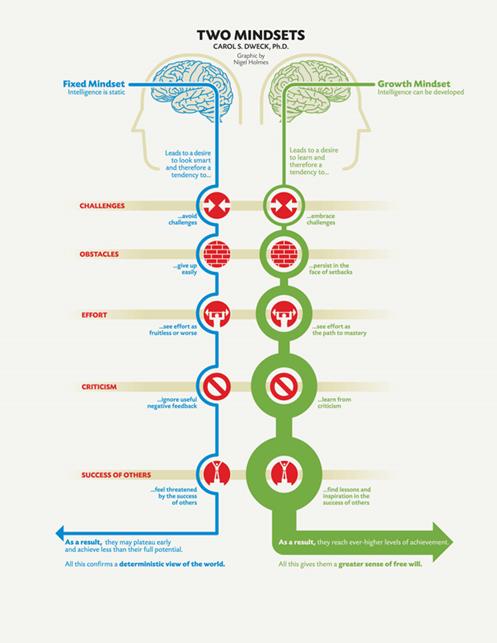
5 minute read
West Midlands - A Growth Mindset: Imposter Syndrome’s Nemesis
A Growth Mindset: Imposter Syndrome’s Nemesis
Authors: Dr Nicky Eddison and Dr Ros Leslie Trust: RWT
Ever felt as though at any moment you are going to be found out as a fraud, like you don't belong where you are, and you only got there through luck? Believing that others have so much more knowledge than you. You’re not alone, many people experience these feelings.

Imposter syndrome was first described in 1978 as “an internal experience of intellectual phoniness”1. People with impostor syndrome struggle with a debilitating feeling of self-doubt, intellectual inadequacy and anticipated failure, often refusing to acknowledge that their performance is due to their ability. Instead, they believe luck or other people are the cause of their success, yet conversely put setbacks down to their incompetence2. The literature shows that imposter syndrome is prevalent amongst all genders, ethnicities and age groups2.


May 2022




Figure 1: Adapted from https://www.verywellhealth.com Research indicates a harmful association between impostor syndrome and job performance, job satisfaction, and burnout amongst healthcare professionals2.

May 2022

Stanford psychologist Carol Dweck is an expert on how belief systems about our own abilities fuel our behaviour, known as “Mindset Theory”3. Dweck describes two mindsets (see figure 2), describing how we view and inhabit our personality.
EA “fixed mindset” assumes that our character, intelligence, and ability are innate and cannot be changed and that success is the affirmation of that inherent intelligence, creating an urgency to prove yourself .
over and over. In this mindset, “you’re always trying to convince yourself and others that you have a royal flush when you're secretly worried it’s a pair of tens”3.

“Change the way you look at things and the things you look at change” Dr Wayne Dyer.

A “growth mindset,” on the other hand, thrives on challenge and sees failure not as evidence of a lack of intelligence but as an opportunity for growth and improving our abilities. This growth mindset is based on the belief that effort and perseverance can nurture and develop our abilities. Dweck found, that the growth mindset creates a passion for learning rather than a quest for approval.

May 2022

People with this mindset are not discouraged by setbacks and don’t see them as failures; on the contrary, they view it as an opportunity to learn. With a fixed mindset, effort is a bad thing. It, like failure, means you’re not smart or talented. If you were, you wouldn’t need effort. For the growth mindset, effort is what makes you smart or talented.
The well-known quote “if you’re the smartest person in the room, you’re in the wrong room” is indicative of a growth mindset, stepping out of your comfort zone, embracing the challenge, and seizing the opportunity to learn.

So, how might this link in with imposter syndrome? Dweck found that often people greatly misestimated their performance and their ability. But it was those with the fixed mindset who accounted for almost all the inaccuracy. The people with the growth mindset were amazingly accurate3.

May 2022




Figure 2: Two mindsets adapted from Mindset: The New Psychology of Success3

32 May 2022

So, if you recognise the uncomfortable presence of imposter syndrome, perhaps reflect on the type of mindset you currently have and challenge the views you hold. Other practical tips include:
Practice setting realistic goals.
Recognise your expertise.
Define what success means to you without including the approval of others.
Stay away from toxic competitions.
Don't rely exclusively on external validation.
Set limits and boundaries to avoid overworking.
Practice responding to failure in a healthy way.
Praise yourself for successes and efforts.
Remember nobody is perfect.
Determine your support system and lean on them when needed.



May 2022 33

References 1. Clance P R and Imes S. The impostor phenomenon in high achieving women: dynamics and therapeutic intervention. Psychother Theory, Res Pr. 1978;15. 2. Bravata DM, Watts SA, Keefer AL, et al. Prevalence, Predictors, and Treatment of Impostor Syndrome: a Systematic Review. doi:10.1007/s11606-019-05364-1 3. Carol Dweck. Mindset: The New Psychology of Success. Reprint ed. Ballantine Books; 2007.
Dr Nicky Eddison is an Associate Dr Ros Leslie is the Non-Medical Professor and AHP Research Lead. Research Lead and Chief AHP



May 2022











